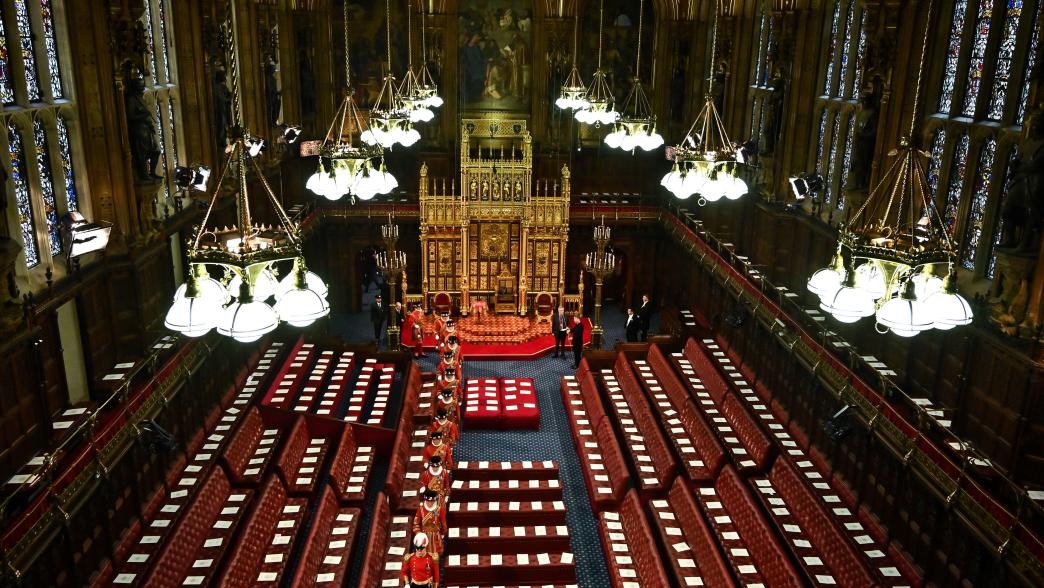Reform is needed to protect the UK’s embattled political constitution
The UK's constitution has been stretched to breaking point.

There is an urgent need to strengthen the UK constitution – and a new report sets out a menu for reform, writes Jack Pannell
For nearly a decade the UK constitution has faced successive challenges and crises. From the institutional clashes over Brexit, to the coronavirus pandemic, to the scandals over integrity and ethics in government, our political system has been put under severe strain.
It was for this reason that the Institute for Government and the Bennett Institute for Public Policy at the University of Cambridge decided to launch a Review of the UK Constitution. Over the course of the last 18 months, we have published 16 papers examining topics including voting systems, the House of Lords and devolution in England, and have put forward ideas for reforms in specific areas.
Our final paper, out now, marks the conclusion of this review, and sets out our view on the state of the UK constitution and our proposals for improving how it works. Having been tested to, and sometimes beyond, breaking point, the need to reform the constitution is now urgent.
Parliament can be a stronger guardian of the constitution
Parliament is at the centre of the UK constitution, but it often struggles to fulfil its role as a constitutional check. A government with a majority in the House of Commons can push through many constitutional changes, with insufficient scrutiny from parliament, and the House of Lords lacks the democratic legitimacy to challenge the government. Parliament needs to be empowered to better protect the constitution.
Our report recommends the establishment of a new Parliamentary Committee on the Constitution – combing the expertise of peers and the democratic legitimacy of MPs – to provide a central source of constitutional knowledge and authority, long-term thinking on the constitution and detailed scrutiny of any government proposal for constitutional change. Its powers would be greater than an a parliamentary select committee – it would be able to delay bills or refer matters to a vote on the floor of each House – and it would also act as a constitutional conscience for Parliament more broadly.
Currently the UK makes little distinction between ordinary legislation, and major constitutional legislation, such as the Parliament Acts, the Human Rights Act, or the legislation underpinning devolution. A new category of ‘constitutional acts’ would help bring clarity, helping parliament to provide a stronger check on the government for constitutional matters. There should also be a more extensive scrutiny processes for constitutional bills, and protections for constitutional acts to ensure that they cannot be amended or repealed without the consequences being fully explored.
Constitutional knowledge and guidance in government should be strengthened
There are key checks and balances within government too, between ministers and the cabinet, and between ministers and official. The civil service plays a key role in helping ministers to understand the constitution, and the implications of any proposals for reform. But this relationship has become increasingly strained, with officials feeling that they lack the authority to speak candidly to ministers.
The civil service should be given more grounding and support to advise ministers on the constitution, with a a new permanent centre for constitutional expertise bringing together the advisory functions currently spread across different parts of Whitehall. This, paired with a defined role for the cabinet secretary in advising on the constitution, would allow for better advice, training and education on the constitution, both for officials and ministers.
More also needs to be done to make it easier to hold the government to account. Guidance on the constitution should be strengthened, with the cabinet manual updated each parliament and - to ensure that the government’s view on constitutional conventions is clear - endorsed by the cabinet.
The public deserve more input into our constitution
Finally, and perhaps most importantly, the public should have a greater role in shaping constitutional change. Too often political parties, with a vested interest, drive constitutional change for partisan reasons. But public support for fundamental changes to our system of governance is essential to ensure legitimacy, and to deliver long-lasting stable reforms.
UK citizens have their say through elections and referendums, but new and innovative methods would give the public a more comprehensive role. The government should make more use of deliberative democratic exercises such as citizens assemblies, citizens juries, and constitutional conventions to help shape how a proposed change might be implemented, or to develop information to disseminate to the general public.
Over hundreds of years of steady evolution, the greatest strength of the UK’s political constitution has been its ability to adapt in the face of challenges. It has endured despite the turmoil that has engulfed British politics in recent years, but those years have also seen trust in British politics – and its institutions – seriously damaged. Before further harm can be inflicted, now is the time for reform.
- Political party
- Conservative Labour
- Position
- Prime minister Cabinet secretary
- Administration
- Johnson government Sunak government
- Department
- Cabinet Office
- Public figures
- Boris Johnson Simon Case
- Publisher
- Institute for Government